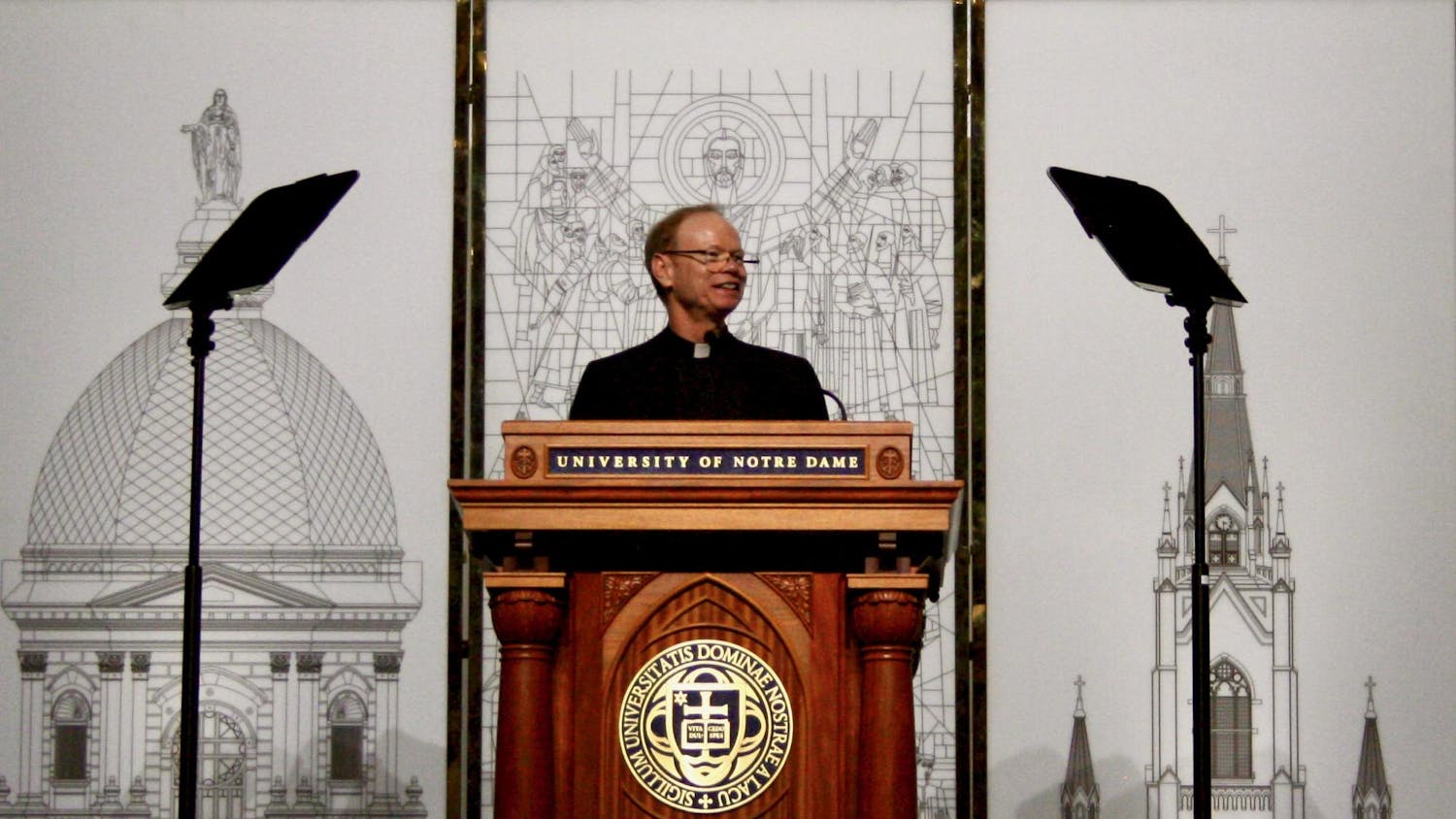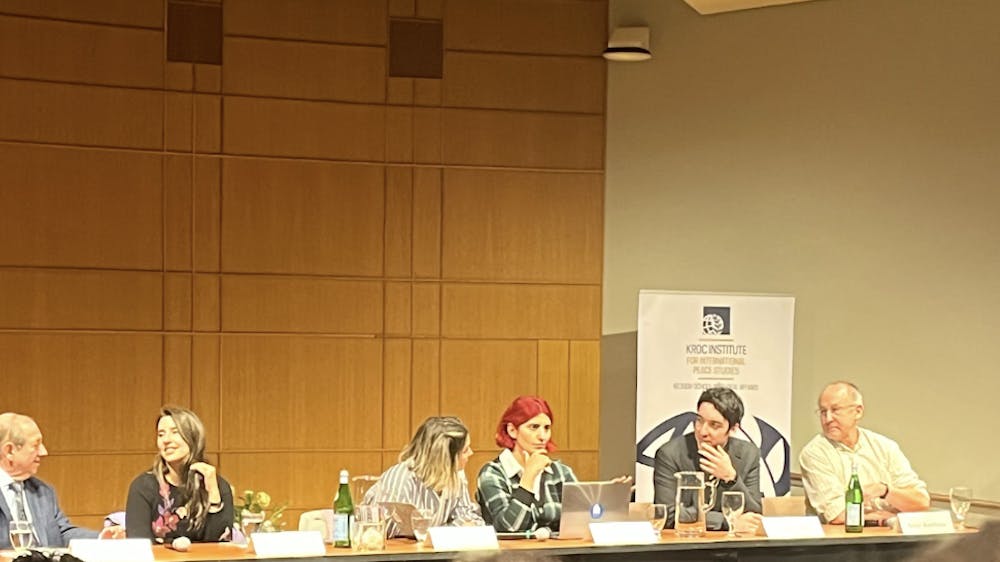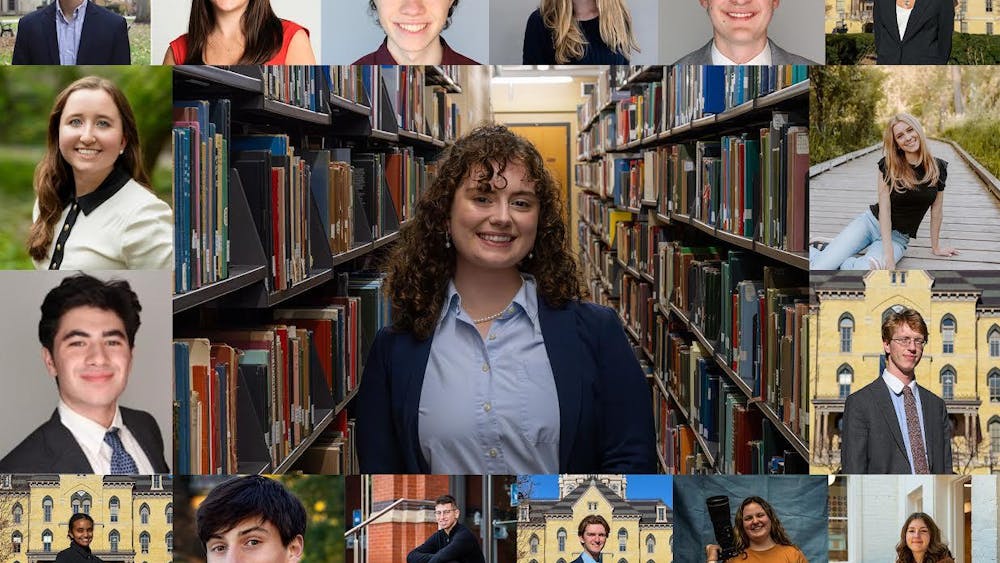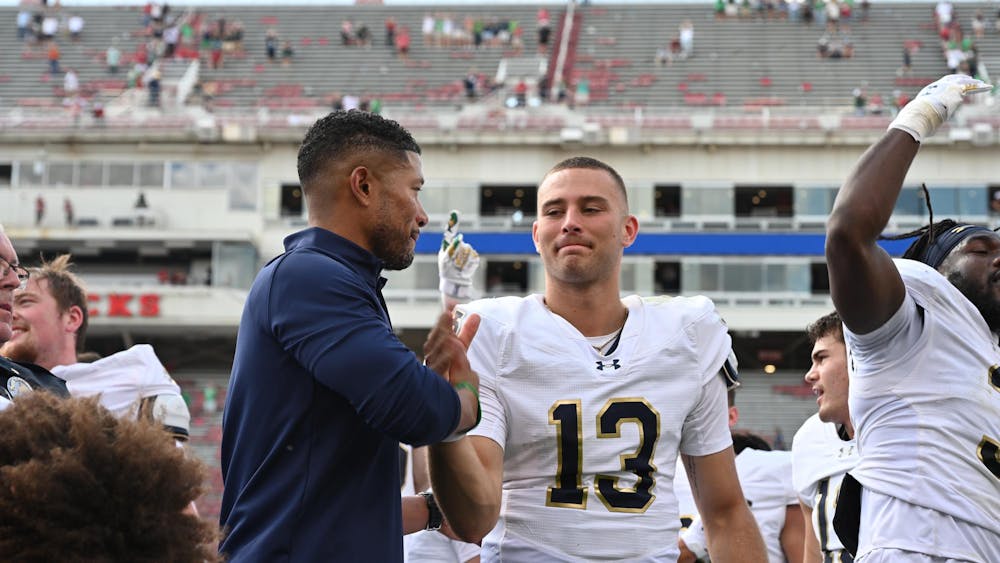Calling for the tri-campus community to see their education as a stepping stone toward pursuing their greater purpose, Cornel West, Harvard professor, philosopher, activist and author of social sciences book “Race Matters” delivered the 25th-annual Hesburgh Lecture in Ethics and Public Policy on Friday night.
West began by taking time to thank two Notre Dame professors who he said made a lasting impact on him as colleagues in thought.
“I would like to dedicate my feeble words and my weak efforts that can never capture the depth, the scope, the breath of who ultimately they were — Erskine Peters and Joseph Buttigieg,” West said.
West did not only recognize the lasting impact of his peers, but also the lasting legacy of the University’s President Emeritus Fr. Theodore Hesburgh.
“[Hesburgh] was willing to embark on wrestling what the most fundamental question any one of us will ever have to come to terms with: ‘What does it mean to be human?’” West said.
West used Socrates’ teachings as an illustration of how education should be used as a means to promote free thought in society.
“Socrates argues that we must take seriously argument evidence, viable conclusions,” he said. “We must be able to enter public space without humiliation to disagree with one another across political, ideological lines in a respectful way.”
Approaching education in this way allows us to challenge and change our views, pushing us to grow as people, West said.
“All of us have the capacity to change — don’t ever freeze anybody in a stationary stance,” he said. “And allow them to keep track of your devilish behavior. We humanize, and anytime you humanize, you contextualize, and you pluralize and you individuate so we’re all distinctive persons.”
West said Notre Dame students ought to carry the legacy Hesburgh left them and, in Socratic fashion, pursue their education for a greater purpose.
“Young folk, our dear Fr. Ted would want to say to you, ‘Socratic legacy of Athens is about finding your sense of a calling — not just a career of vocation, not just your profession. … [It’s about] trying to make a decision of what kind of human being you’re going to be, what kind of virtues, what kind of visions, what kind of values will they say about you when you are in your coffin at your funeral,’” West said. “They’re not going to read your curriculum vitae at that moment. They’re going to talk about what was the scope of their courage to think, to laugh, to love, to sacrifice, to serve?”
West said in order to live for this greater purpose, we must be willing to submit ourselves to the transformative experience education provides us.
“The question will be, ‘Have you really learned how to die, in order to learn how to live?’” West said. “Because when you interrogate yourself and give up any slice of assumptions, of presupposition, any prejudices you have, any prejudgments that need to be unsettled, that’s a form of death. And there’s no education without death and no paideia. I’m talking about deep education, not cheap schooling. Cheap schooling is about information and steel acquisition. No, what goes on at Saint Mary’s, what goes on at Notre Dame, is paideia. That transformation — that metanoia — that fundamental interrogation of self that results in intellectual, moral, political awakening.”
Though a quality education is important, we must also learn to love and serve one another, West said.
“Love flows across denominations, flows across skin pigmentation, it flows across class and national boundaries,” he said. “I am who I am because somebody loved me, somebody cared for me, somebody attended to me.”
With love comes an openness to truth, West said, which in turn allows us to empathize with those less fortunate than us.
“If you shatter your numbness, shatter your callousness, shatter your indifference, maybe you can listen to the voices of the suffering,” he said. “It’s an invitation to care, an invitation to have a concern, an invention to be in solidarity, to express generosity.”
Read More
Trending









